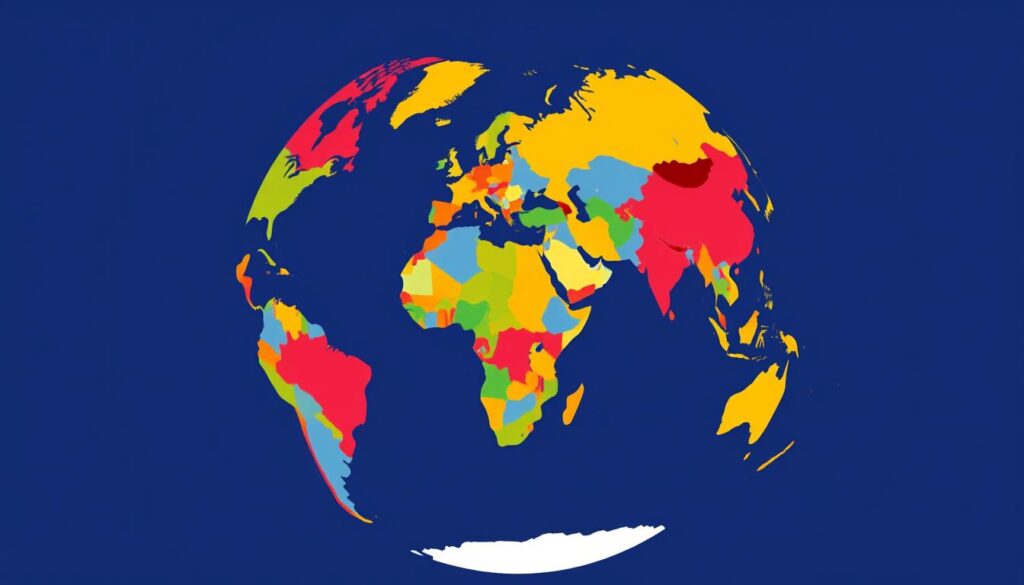Pursuing a degree in a foreign country can be a life-changing experience, offering unique educational opportunities that combine academic excellence with cultural immersion. The first and first duty is to find best bachelor programs abroad for your higher study.
At educations.com, we believe that students who venture abroad become the next generation of globally-minded adventurers and leaders. With over 40 million students connecting with top universities worldwide every year, the options are vast.
The global education landscape offers diverse undergraduate programs tailored to international students seeking quality education beyond their home countries.
Key Takeaways
- Pursue a degree that combines academic excellence with cultural immersion.
- Explore diverse undergraduate options across different countries and fields.
- Understand application requirements and financing options for international students.
- Gain global perspectives that enhance your future career prospects.
- Make informed decisions about your academic journey abroad.
Why Pursue a Bachelor’s Degree Abroad and Find Best Bachelor Programs Abroad
Pursuing a bachelor’s degree abroad can be a life-changing experience. It offers students the opportunity to access world-class education, immerse themselves in new cultures, and develop valuable skills that can enhance their career prospects.
Academic Benefits of International Education
Studying abroad provides students with diverse academic approaches and exposure to specialized programs that may not be available in their home country. The immersive language environment accelerates linguistic proficiency, particularly valuable for programs taught in a second language. International education also fosters critical thinking skills, as students navigate different cultural contexts and educational systems.
| Academic Benefits | Description |
|---|---|
| Diverse Academic Approaches | Exposure to different teaching methodologies and academic systems |
| Specialized Programs | Access to unique programs not available domestically |
| Language Proficiency | Improved linguistic skills through immersive environment |
Career Advantages for Global Graduates
Global graduates often demonstrate enhanced critical thinking skills and cross-cultural communication skills, making them highly attractive to employers. The journey of studying abroad at the undergraduate level builds resilience and problem-solving abilities that translate directly to workplace readiness. International degree credentials can distinguish graduates in competitive job markets and open doors to global career opportunities.

Top Countries for Undergraduate Study Abroad
The world offers a diverse range of study destinations, each with its unique advantages and attractions. When considering where to pursue an undergraduate degree, several factors come into play, including academic reputation, cultural experience, and post-graduation opportunities.

European Destinations: Germany, France, and Spain
European countries offer diverse study abroad programs with varying tuition structures. For instance, Germany’s tuition-free public universities attract students looking for affordable education, while France’s subsidized education system and Spain’s rich cultural immersion opportunities provide a unique blend of academic and cultural experiences.
English-Speaking Options: UK, Ireland, Australia
The UK, Ireland, and Australia remain top choices for English-speaking international students. These countries are home to prestigious universities with strong global rankings and comprehensive support services for international students.
Emerging Study Destinations: Japan, New Zealand, Costa Rica
Japan has emerged as a leading Asian destination, offering generous scholarship programs and increasingly providing English-taught programs. New Zealand attracts students with its outstanding natural environment and high-quality education. Meanwhile, Costa Rica represents a growing trend of non-traditional study destinations, offering specialized programs in sustainability and Spanish language immersion.
Each of these countries presents unique advantages in terms of academic reputation, cultural experience, and post-graduation work opportunities. The choice of study destination significantly impacts not only the academic experience but also cultural adaptation, language acquisition, and future career networking possibilities.
Most Popular Bachelor Programs for International Students

The most sought-after bachelor’s degrees among international students vary, but certain fields stand out for their global relevance. International students can choose from a diverse range of programs that cater to their interests and career goals.
Business and International Relations
Business administration and international business programs are highly popular among international students. These programs offer global perspectives on commerce and management, preparing students for careers in a globalized economy. Many universities design business programs specifically for international cohorts, incorporating cross-cultural management principles and international case studies.
STEM Fields and Engineering
STEM fields (Science, Technology, Engineering, and Mathematics) attract international students due to their universal applicability and strong employment prospects. Engineering programs with international accreditation provide students with qualifications recognized worldwide, facilitating global mobility in their professional careers.
Arts, Humanities and Liberal Arts
Arts, humanities, and liberal arts programs offer international students opportunities to develop critical thinking and communication skills highly valued in the global workplace. Film studies, digital media, and creative arts programs in countries with established entertainment industries provide unique practical experiences and industry connections.
Many popular bachelor programs for international students feature integrated internship opportunities, study abroad semesters, or industry partnerships that enhance employability. Universities are increasingly offering interdisciplinary programs that combine technical skills with humanities perspectives, preparing international students for complex global challenges.
Application Requirements for International Undergraduates
Understanding the application requirements is crucial for international students looking to pursue undergraduate studies abroad. The process involves several key steps and documentation.
Academic Prerequisites and GPA Requirements
International students must meet specific academic prerequisites, which typically include completing secondary education equivalent to the host country’s standards. The specific subject requirements can vary depending on the program of study. Most universities establish minimum GPA requirements, generally ranging from 2.5-3.0 on the U.S. scale.
| Country | Typical GPA Requirement | Additional Requirements |
|---|---|---|
| USA | 2.5-3.0 | Standardized test scores (SAT/ACT) |
| UK | Equivalent to BBC or above in A-levels | English language proficiency tests |
| Australia | Competitive scores in senior secondary certificate | English language proficiency tests |
Language Proficiency Tests
Language proficiency represents a critical requirement, with most English-taught programs requiring standardized test scores such as TOEFL (typically 80-100) or IELTS (typically 6.0-7.0).
Visa Requirements and Documentation
Visa requirements vary significantly by country but generally include proof of admission, financial sufficiency documentation, health insurance, and sometimes pre-visa interviews. International students should research the specific requirements for their chosen country and institution.

By understanding these requirements, international students can better navigate the application process and increase their chances of successful enrollment in their chosen program abroad.
Understanding the Costs of Bachelor Programs Abroad
Pursuing a bachelor’s degree abroad can be a costly endeavor, but understanding the expenses involved can help international students make informed decisions.

Tuition Fee Comparisons by Country
Tuition fees for bachelor programs abroad vary dramatically by country, with annual costs ranging from completely free in countries like Germany to over $50,000 at prestigious private universities in the US and UK.
Public universities in many European countries offer significantly lower tuition rates than their North American counterparts, with some charging international students the same fees as domestic students.
Living Expenses and Accommodation Costs
Living expenses often constitute the largest portion of studying abroad costs, with accommodation typically representing 30-50% of monthly student budgets.
Major metropolitan city like London, Sydney, and Tokyo present substantially higher living costs compared to smaller college towns or less economically developed regions.
Countries with Free or Low-Cost Tuition
Countries including Germany, Norway, Finland, and Austria offer tuition-free public university education even for international students, though administrative fees may still apply.
France, Italy, and Spain provide heavily subsidized education with annual tuition often under €3,000, making them affordable options in Western Europe.
When calculating the total cost of a bachelor program abroad, students must consider additional expenses such as health insurance, residence permits, travel costs, and potential currency fluctuations.
Financing Your Undergraduate Study Abroad

Financing an undergraduate program abroad requires careful planning, but numerous scholarships and grants can help. International students have various options to fund their studies.
International Scholarships and Grants
Merit-based scholarships are a primary funding source for academically exceptional students. Government-sponsored programs like Fulbright, Chevening, and Erasmus+ provide substantial financial support.
Many host universities allocate dedicated scholarship funds for international students, often with separate application processes.
Work-Study Opportunities Abroad
Work-study opportunities vary by country, with some student visas permitting part-time work (typically 10-20 hours weekly) to offset living expenses. On-campus employment provides convenient work options that accommodate student schedules.
Financial Aid from Home Countries
Financial aid from home countries, including government loans and national scholarships, remains available to students pursuing degrees abroad. Financial aid portability policies differ by country.
Today, students are also utilizing crowdfunding platforms and digital sponsorship opportunities to supplement traditional financial aid sources. Strategic timing of scholarship applications is crucial, as many major funding opportunities have deadlines 9-12 months before the intended study abroad program begins.
Student Experiences: Life as an International Undergraduate
Pursuing an undergraduate degree in a foreign country can be both exhilarating and daunting for international students. The journey involves not just academic pursuits, but also navigating a new culture and environment.
Cultural Adaptation
International students typically experience an initial adjustment period characterized by cultural adaptation challenges, including language barriers and different academic expectations. Universities with robust support services help facilitate smoother transitions.
Global Networking
Building a global network is a significant aspect of studying abroad. Connections made during this period often become valuable professional assets, spanning multiple countries and industries.
Balancing Academics and Exploration
Studying abroad requires balancing rigorous academic requirements with exploring the host country. Effective time management and prioritization are key skills for international students to master.
| Aspect | Challenges | Opportunities |
|---|---|---|
| Cultural Adaptation | Language barriers, homesickness | Cultural immersion, new perspectives |
| Global Networking | Building connections in a new environment | Professional network, diverse friendships |
| Balancing Academics and Exploration | Time management, academic pressure | Personal growth, new experiences |
Taking the Next Step: Planning Your Bachelor’s Journey Abroad
Navigating the world of international education requires a strategic approach to find the best fit. As you prepare to study abroad, it’s essential to start planning early.
Timeline for Applications and Preparation
Begin by creating a detailed timeline, ideally 12-18 months before your intended enrollment. This allows sufficient time for researching countries, universities, and specific programs that align with your academic and career goals.
Resources for Program Research and Selection
Utilize online platforms dedicated to study abroad experiences for valuable resources, including program comparisons and scholarship databases. Connecting with current international students or alumni can also provide authentic insights into student life and cultural adaptation.











